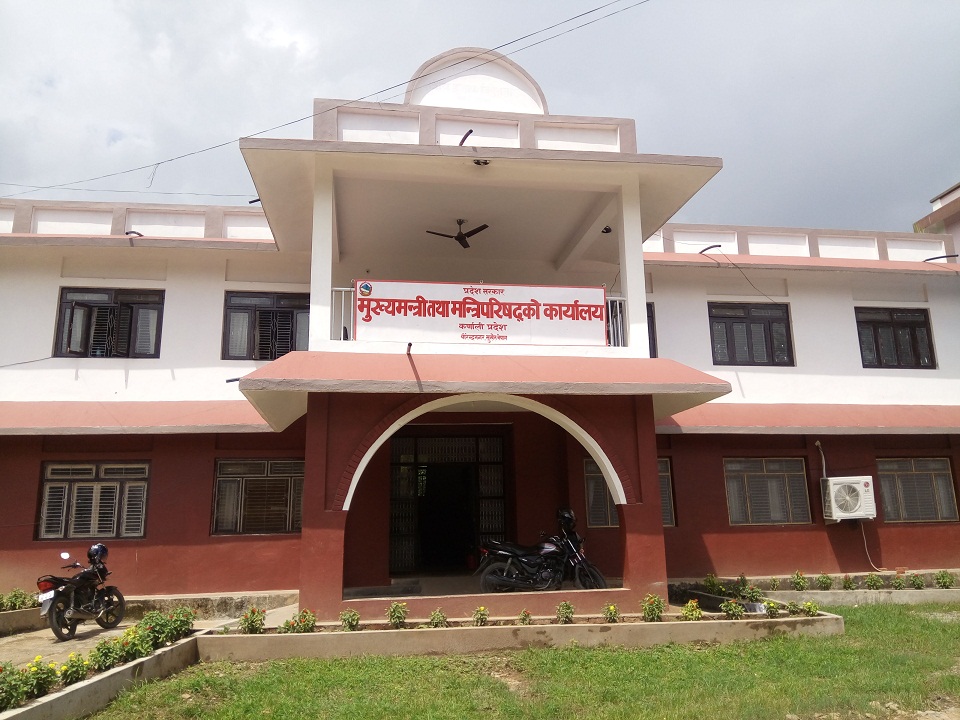
OR

Preference for English language in social sciences is indicative of its hegemonic status in Nepal
One common question posed by those interested in social sciences in Nepal is: Why is it necessary to practice social science disciplines in English? This question has been haunting us for some time. Language is an important instrument used not only for expression but also to display power hierarchy. The ability to express oneself in English carries considerable social and political capital. One vivid example of this is the emphasis of parents that their children master English language, which is supposedly a gateway to success.
This article in no ways intends to demean English language, but it is critical of the politics associated with it. The authors argue for use of multiple languages as means of communication and expression in social sciences in Nepal. Often, Nepali students, despite having adequate knowledge in their respective disciplines, can’t clearly express them as they have to do it in English. This is particularly the case when they are asked to produce their assignments in English. One reason for their poor showing in English has to do with the poor treatment of the subject at the school level, especially in our public schools. This, however, should not be a hindrance to those who want to express themselves clearly.
Again, students who are not confident about their English proficiency flounder when asked to produce their works in the language. This is indicative of the hegemonic status of English in the non-English speaking world. Moreover, social science journals published in Nepal show clear preference for English as their medium of expression. Major symposiums and seminars are held in English, too, leaving those not confident in the language at great unease. This clearly reaffirms the hegemony of knowledge production, so much so we stop considering if promotion of multiple languages will actually enhance social sciences.
A case in point is the paucity in Nepal of easily readable textbooks in languages other than English. Those that are available do not do justice as they are only ‘guide books’ that have no other purpose than getting students to pass their annual examinations. The responsibility of producing such textbooks rests on professionals including those in the university system, in Tribhuvan University in particular. However, there seems to be little interest towards that end. Their inability to grasp the concepts of social sciences—that are the products of varied social settings—in turn has dented the confidence of many aspirants and practitioners of social sciences in Nepal.
In some cases they may give up the discipline. During their professional careers the practitioners of social sciences are overwhelmed when they encounter texts, all written in English, and have to imagine or interpret their reality using these very texts. This in many cases also leads to poverty of imagination, where the attempt is only to fit your reality with the ideas expressed in those texts. For instance Anthony Giddens in his seminal textbook Sociology talks about coffee-drinking culture in England, which would be difficult for Nepali readers to comprehend as, unlike in England, this is not a national pastime in Nepal.
In addition, few contributions are made to academic journals in Nepali. The absence of Nepali terms to describe concepts that are described in English may be one reason for this.
This also means that when it comes to using literature, one has to ignore literature in Nepali or in other languages spoken here. This only increases preference for texts in English, further contributing to our poverty of imagination. We must therefore encourage academic writing in Nepali and other languages spoken here.
The preference for English equally applies to foreign scholars who work on Nepal but display little knowledge of works being produced in Nepali or other languages spoken here. This alleged contempt for non-English literature indicates a condescending attitude.
If knowledge of English is mandatory to work in universities in the English world, knowledge of local languages in Nepal should be mandatory for those looking to work in social sciences in Nepal.
The authors are assistant professors at Kathmandu School of Law
You May Like This

West Nawalparasi based prison holds jailbirds beyond capacity
NAWALPARASI, April 1: The Parasi-based district prison of western Nawalparasi has seen trouble with the adjustment of higher number of... Read More...

Completed transfer lists of English Premier League
The 26th edition of world’s premier football league has already started. Whilst the clubs are still looking to find players and... Read More...

When soul traveled Beyond Her Eyes ...
Beyond Her Eyes: An adventure in the Netherworld by Anoushka Poudel is a charming novel woven out of adventures undertaken by... Read More...




Just In
- 70 community and national forests affected by fire in Parbat till Wednesday
- NEPSE loses 3.24 points, while daily turnover inclines to Rs 2.36 billion
- Pak Embassy awards scholarships to 180 Nepali students
- President Paudel approves mobilization of army personnel for by-elections security
- Bhajang and Ilam by-elections: 69 polling stations classified as ‘highly sensitive’
- Karnali CM Kandel secures vote of confidence
- National Youth Scientists Conference to be organized in Surkhet
- Rautahat traders call for extended night market hours amid summer heat
















Leave A Comment